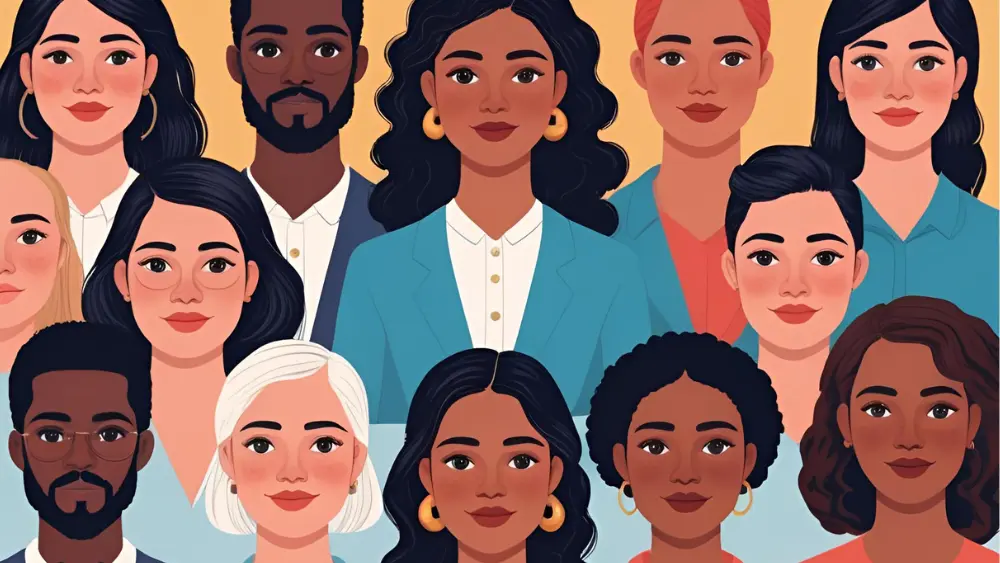Remember when your MySpace profile music choice was a serious statement about who you were as a person? If you're anything like me, hearing those old tracks now sends you straight back to specific moments - complete with the questionable fashion choices and emotional dramatics.
Think about it. The first dance at your wedding. The song that got you through your A-levels. That embarrassing tune you and your mates belted out during karaoke at your local. Music doesn't just accompany our memories - it preserves them in startling detail.
I discovered this by accident when my flatmate's ancient iPod turned up during a clear-out. One shuffle play later, and suddenly I'm transported back to our tiny kitchen, dancing to Soul to Soul while attempting to make pasta at 2 AM.
This isn't just nostalgic nonsense - there's proper science behind it. Music activates the same areas of our brain that handle memory and emotion. It's like having a mental time machine, except instead of a portable CD player, you've got Spotify.
Want to try it? Here's how to use music to unlock your memories:
Make a timeline playlist. Start with your earliest memory-triggering song and work your way up to present day. That progression from S Club 7 to Stormzy tells its own story.
Pick one song from each era of your life.
What was playing when you passed your driving test?
What album got you through your first breakup?
What song makes you think of your best mate?
Write about the concerts and gigs you've been to. Even if the music was rubbish, those nights often mark specific moments in time. (Like that time you queued for hours in the rain at Reading Festival, convinced you were having the time of your life.)
Don't just focus on the good stuff. That song you now hate because your ex ruined it? That's part of your story too. The cheesy pop song you're embarrassed to admit you know all the words to? Pure gold for memoir writing.
When you're ready to write, put on the song from the era you're focusing on. Let it transport you back.
Write about where you were, what you were wearing, who you were with, what you were feeling.
Music has a way of bringing back details you thought you'd forgotten - the smell of cheap aftershave, the feel of new shoes rubbing your feet, the taste of whatever questionable alcopop was popular at the time.
The brilliant thing about using music as a memory trigger is that it bypasses our tendency to overthink. You're not just remembering what happened - you're remembering how it felt. And isn't that what makes a story worth reading?
Plus, creating a soundtrack to your life is a good laugh. You'll probably cringe at some of your past music choices, but that's half the fun. Your terrible taste in the Third Year is just as much a part of your story as your carefully curated playlists now.
Remember - you're not writing the next best selling novel here. You're just using music as a tool to unlock memories that might otherwise stay buried under layers of adulting and responsibility.
So go on, dig out those old playlists. Create a musical timeline.
Let yourself remember. And yes, absolutely include that one hit wonder you were obsessed with in 2007. Future generations need to know what we were thinking.
Memoir Prompt: Let the Music Write Your Memory
In psychological terms, this phenomenon is known as music-evoked autobiographical memory (MEAM)—when music suddenly brings personal memories flooding back, vivid and emotionally charged. Researchers note these flashbacks are often involuntary and layered with sensory detail, emotion, and context—sometimes more vividly than memories triggered by photos or other prompts.
Whether it’s a pop song from your youth or a forgotten instrumental piece, music has a knack for reviving moments tucked away in time.
-
Choose Your Song
Pick one that means something—maybe a school anthem, a parent’s favorite, or a breakup track. You don’t even need deep meaning; familiarity can work wonders. -
Listen Mindfully
Hit play. Close your eyes. Let the melody, rhythm, and words wash over you. Notice how your body responds—does it bring a smile? A sigh? A memory? -
Journal That Moment
Let the memory unfold in your notebook:-
Where are you transported?
-
Who are you with?
-
What do you see, hear, smell?
-
How does it feel—emotionally, physically?
-
-
Reflect on the Connection
Why did that song trigger this memory?
How do you feel now, in contrast to then?
What does this reveal about who you are—or were?
Why This Works
-
Brain Science Support: Music taps into the emotional, memory-sharing regions of the brain—often evoking richer detail than other triggers
-
Sensory Depth: Music is layered—it carries imagery, rhythm, and emotional tone at once, making it a powerful tool for memoir unpacking.
-
Accessible Ritual: No props needed—just your favourite tunes and your pen. Perfect for writing rituals or a portable prompt.
-
Cross-Channel Appeal: Titles like these work beautifully as email subject lines, social media posts, or inspirational starter cards.
Journal Kick-Off Questions
-
What scene plays out when this song begins? (Location, people, season)
-
Can you pinpoint the first time you heard it?
-
Did anyone else in your life connect to it too?
-
Would that person remember the memory the same way?
Sometimes, all it takes is one melody to bring a whole past to life.


